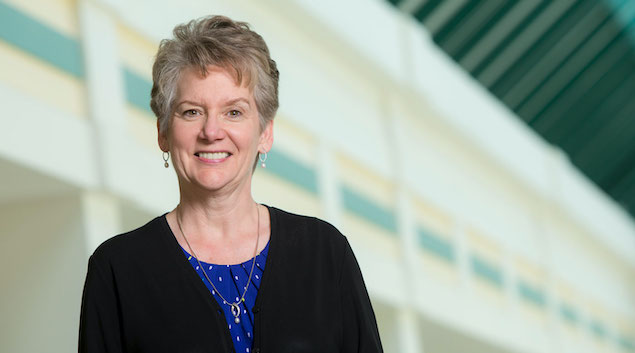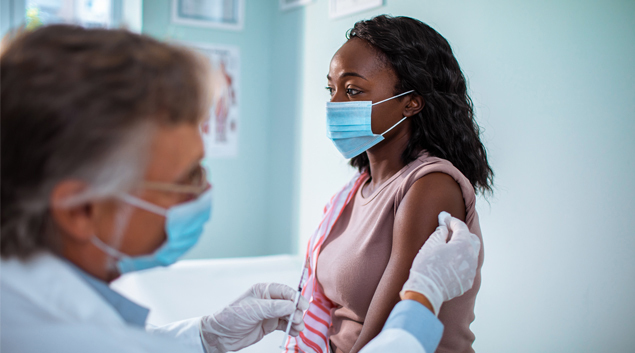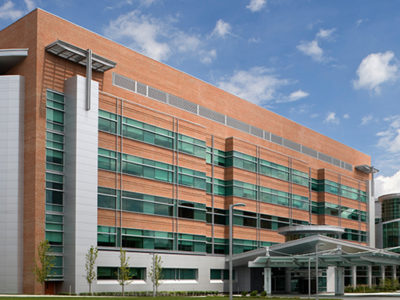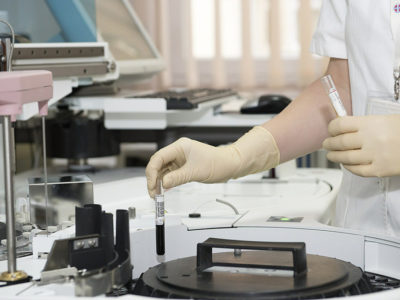
The recently approved treatment for COVID-19, remdesivir, can now be used to treat patients due, in part, to research conducted at Dartmouth-Hitchcock Medical Center in New Hampshire.
Dartmouth-Hitchcock was one of the first 20 testing sites to join clinical trials of remdesivir after its research operations team got its studies activated in less than two weeks, a process that usually takes 90 days, according to Susan Reeves, EdD, RN, executive vice president of Dartmouth-Hitchcock Medical Center, who oversees research operations
Earlier this month, the U.S. Food and Drug Administration approved remdesivir to be used in treating adults and pediatric patients 12 years and older and weighing at least 88 pounds who were hospitalized with COVID-19.
HIMSS20 Digital
Learn on-demand, earn credit, find products and solutions. Get Started >>
When President Trump was diagnosed with COVID-19, remdesivir was one of the treatments he was given at Walter Reed National Military Medical Center.
CHALLENGES
Like many organizations across the globe, when the pandemic hit with full force, many of Dartmouth-Hitchcock’s employees were sent home, including almost all of its research support staff.
At the same time, the research operations team was adapting to a slate of new members, acclimating to life during a global pandemic and adjusting to remote work, investigators told them they needed to begin setting up online clinical trials for COVID-19 research. To make things even more complicated, they had to do it as quickly as possible.
“It meant that the whole group, working from home, knew that organization and frankly, sick patients, were going to depend on them to do what they do and do it really well but do it quickly,” Reeves said.
“Setting up the trials was much easier because our research systems at Dartmouth-Hitchcock Medical Center were in place before COVID-19,” said Dr. Richard Zuckerman, an infectious disease physician at Dartmouth-Hitchcock, who served as the primary investigator for its COVID-19 research. “This enabled rapid execution of agreements, budgets, legal and study-related procedures so we could get up and running quickly.”
As a direct result of the research operation team’s speedy work, Dartmouth-Hitchcock scientists were able to participate in early remdesivir studies as well as conduct work involving convalescent plasma and lenzilumab, a monoclonal antibody that could lessen the severity of COVID-19.
The trials included patients hospitalized with mild to severe COVID-19, and remdesivir was found to be statistically significant in reducing the length of illness and severity of COVID-19.
“We read about healthcare heroes, and they come in all kinds of shapes and forms. But there were multiple, dozens of healthcare heroes working from home in the research operations to make sure patients could be enrolled in these trials,” Reeves said.
Now that remdesivir has been approved by the FDA, it can be used as a tool by hospitals to help patients with COVID-19 recover.
IMPACT OF RESEARCH OPERATIONS
Before a study can even begin, multiple steps must be taken to ensure it can work. These include setting up human safety measures for the subjects enrolled in the study, designing the study to be able to function within the medical center, setting up the financial flow of the study and coordinating with the research staff.
All of these considerations and more are handled by Dartmouth-Hitchcock’s all-female research operations team.
“How did we get to having all five of these directors be women? We hired the best person,” Reeves said. “It just turned out that this time the focus on hiring the right person brought us women into these roles.”
The team itself is made up of five roles: Jennifer Lopez is the director of research operations finance; Kristen Katopol is the director of the human research protection program; Jami Wilson is the director of research nursing and clinical research units; Barb Moskalenko is the director of research operations; and Abby Statler is the director of research quality and safety.
Although the most senior member at Dartmouth-Hitchcock has been there for more than 20 years, two of the team’s members were brought on as recently as May of this year.
“This was a team that formed under extremely adverse conditions [but] you would never know it to sit in a room with them,” Reeves said. “It’s a feeling, when you’re with them, that they’ve worked together for a long time.”
The team discovered that by completing certain parts of their process simultaneously instead of step-by-step they were able to make the whole system more efficient.
Working at such a fast rate isn’t something Reeves wants her research operations team to be doing forever.
“Everybody can work at the pace and with that intensity for a burst of time in an emergency, but as we’ve come to find out, COVID-19 is not a short-lived event,” she said. “We’ve taken our experience and what we’ve learned. We’ve kept the good parts, but certainly we don’t want people working nights, holidays and weekends in order to make things happen as a matter of routine.”
A strategy that Dartmouth-Hitchcock plans to implement going forward is more reliance on digital tools. Tasks such as collecting signatures electronically and holding video conference calls to resolve issues have already proven quicker and easier than the former way of doing business.
Digitized studies also allow for broader participant recruitment, better adherence and opportunities to collect data remotely.
Integrating electronic tools into clinical trials is becoming common practice in research centers across the globe. Roughly three-quarters of clinical trial professionals said that the pandemic has led to an increase of decentralized clinical trials, and more than 90% said they expect to see that trend continue, according to a survey from Pharma Intelligence.
As the year starts to wrap up, the Dartmouth-Hitchcock team is gearing up to implement the first phase of their new clinical-trial-management system, as well as working towards getting their human-subjects-protection program accredited, and as always, building up the research enterprise as a whole.
“COVID has been a blessing and a curse in so many ways,” Reeves said. “We’ve got to remember that there are some really good innovations that are going to come out of this when all is said and done.”















